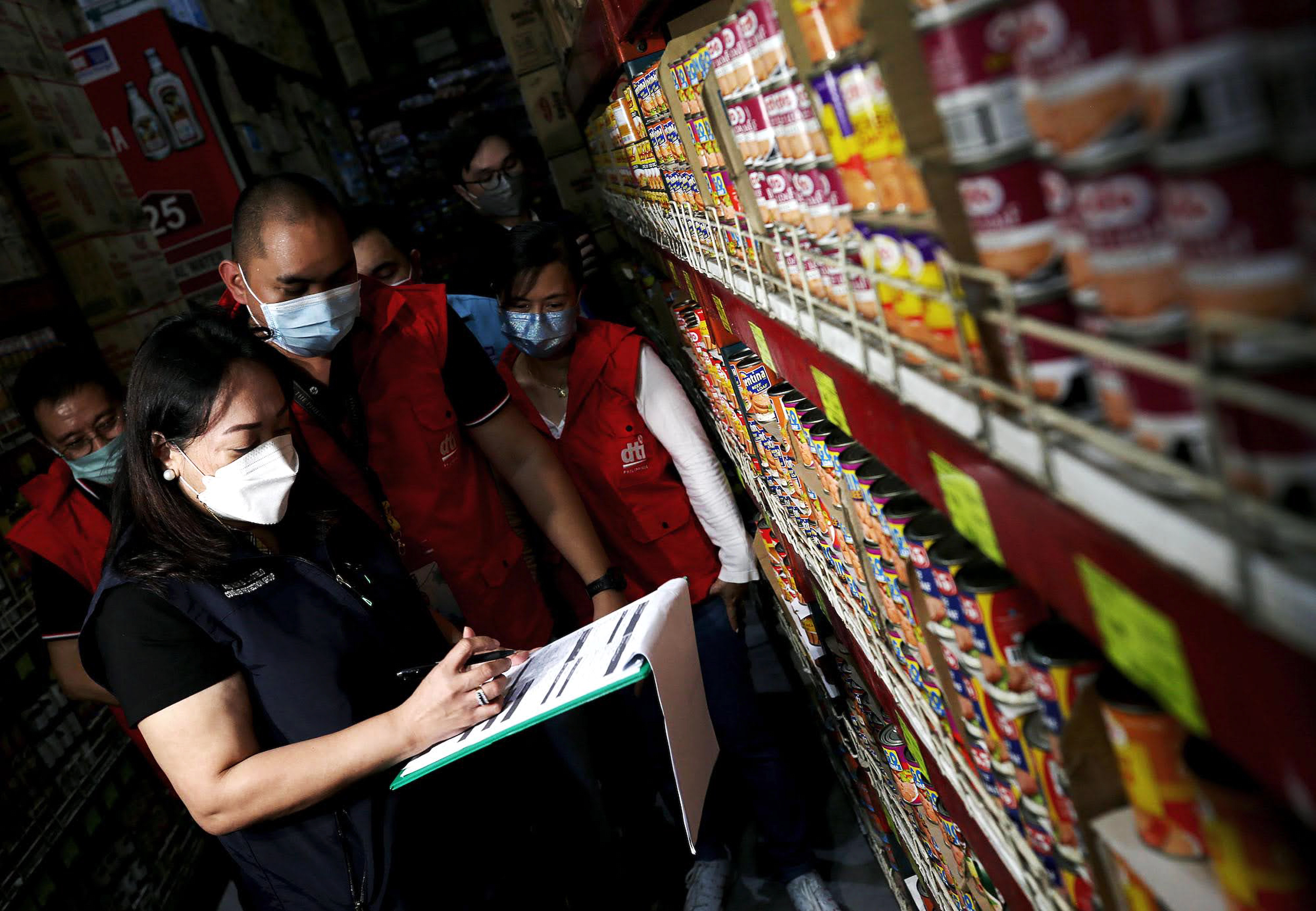
DON’T EVEN TRY | Trade Undersecretary Ruth Castelo checks prices during a routine inspection at a Divisoria, Manila, grocery last July. (INQUIRER FILE PHOTO)
MANILA, Philippines — The Department of Trade and Industry (DTI) on Wednesday warned profiteers that it is closely monitoring the prices of basic goods and necessities in areas where a state of calamity has been declared following Tropical Storm Paeng (international name: Nalgae) earlier this week.
In an interview with FM station Radyo Singko on Wednesday, Trade Undersecretary Ireneo Vizmonte said this is to ensure that there is a price freeze and that there would be no upward adjustment in the prices of these goods.
“This is implemented so that our consumers are not subjected to abuse, for instance, by raising the prices of goods,” said Vizmonte, adding that they want to ensure this in grocery stores and other stores.
The trade official added that they are also extending both financial and nonfinancial assistance for businesses in those areas.
“We have allotted a program, a livelihood seeding program, particularly for affected businesses,” Vizmonte said, adding that they provide training in which participants are supplied with starter kits.
Loans available
“Also, if they need loans, we also have that through our [Small Business Corp.],” he added, referring to the DTI-attached financial institution which provides funding for micro, small and medium enterprises. Aside from these, the DTI said that it is also assuring the availability of supply of basic necessities in calamity-stricken areas.
It said that as the chair of the National Price Coordinating Council, the DTI is coordinating with the Philippine Chamber of Food Manufacturers (PCFMI) to guarantee timely and constant replenishment of goods. The PCFMI is composed of member firms which are manufacturers and retailers of basic necessities and prime commodities.
“The prices and supply of basic necessities and prime commodities are generally stable based on the latest nationwide situational report,” Trade Secretary Alfredo Pascual said in a statement.
“We remind businesses and traders to comply with the price freeze on basic necessities in areas under state of calamity,” he added.
Price Act penalties
Under the Price Act, prices of basic necessities are automatically frozen at their prevailing prices for 60 days once a state of calamity in an area.
These products include, among others, canned fish, locally manufactured instant noodles, bottled water, bread, processed milk, coffee, candles, laundry soap, detergent, and salt. Under the law, penalties for price manipulation include imprisonment of five to 15 years, with fines ranging from P5,000 to P2 million.
Meanwhile, those found violating the price ceiling face prison time of one year to 10 years, as well as fines ranging from P5,000 to P1 million.

